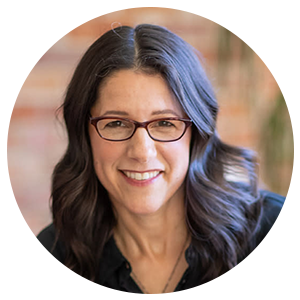Helping teens and adults navigate stress and uncertainty with more confidence | Training practitioners to join the mission
For Teens: Dealing with Your Parents’ Blind Spots Without Losing your Sanity
At some point in your teens or early 20’s you might realize that some of your stress and tension might involve your parents.
Starting around 11 or 12 years old, we naturally start forming our own ideas about life, how it works, and what makes sense to us. And maybe those ideas create friction with your parents.
Maybe your parents seem closed-minded, outdated, or strict in their rules or values where you’re concerned. Maybe they were so wild and reckless themselves that they don’t trust you to be free and responsible even if you’re the sensible one in your friend group.
I have a client whose mom’s a workaholic, doesn’t have a handle on her work-life balance, and is distracted and checked out at home. My client feels like an after-thought to her mom.
I have a 19-year-old client ‘Amy’ who’s bitter and angry because of how her dad handles her alcoholic mom. He won’t set any boundaries to protect Amy or their household from her mom’s unpredictable and destabilizing behavior.
When Amy expresses her frustration to her dad, he defends her mom, is dismissive toward Amy and treats her like she’s being dramatic and uncompassionate.
Parents are supposed to be helpful, supportive, and look out for us, right?
When we don’t feel like that’s happening, it can feel like a betrayal, a lack of respect and caring, and a sign that we don’t matter to the very people we’re supposed to matter to most.
It can feel very personal and like a loss of something essential and fundamental to our ability to trust life, to trust other people, and to be ok in this world.
But just like everyone else you know, parents are human, and their shortcomings are not personal.
Whatever you think your parent’s behavior means, it doesn’t.
When people say or do something hurtful, your mind is quick to draw conclusions about the fact that they don’t care about you, you don’t matter, you’re not important, or that they’re a lesser person, a disappointment, and you’re more alone than you thought.
Those stories and narratives are a very normal way of reacting to hurt and upset. But they’re not truths. They’re contaminated by pain and insecurity. They’re not fact. They’re fiction.
“You can only affect how you handle YOUR life. You can’t affect how other people handle their lives, even if you’re right.”
A certain percent of pain and struggle is unavoidable in life.
Some of that pain may come from the blind spots of people in your life you’re closest to.
However, a huge amount of our pain is often created by our reactions to other people’s blind spots, not the blind spots themselves. When we take those blind spots personally it creates a ripple effect of suffering that’s much bigger than the original act of hurt.
That pain is optional and is something we can learn to prevent or let go of.
What you’d gain by this is the space to feel things like love, forgiveness, and connection to that person, even though they’re not perfect. Those are the feelings we want in our relationships, and we have a lot more influence than we sometimes realize in how our relationships play out.
You can only affect how you handle YOUR life. You can’t affect how other people handle their lives, even if you’re right.
When we learn to see people’s blind spots more neutrally and less personally, we handle things more proactively, more gracefully, and see how to protect our own stability and well-being.
That includes our parent’s blind spots.
That’s the focus of today’s video.

erika bugbee
I’m a global coach who works with teens, individuals, couples, and practitioners that are open and motivated to change.

